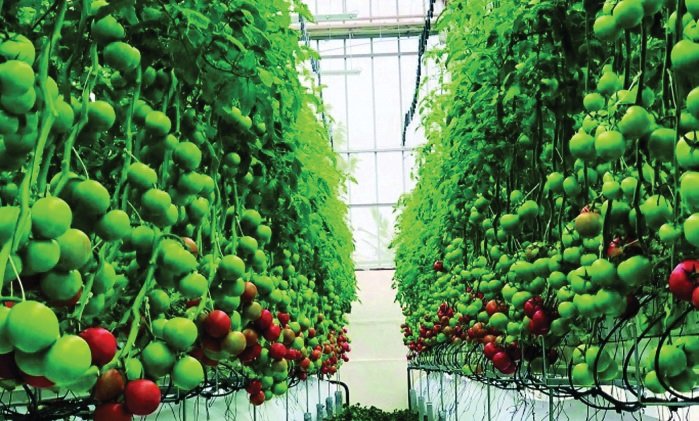Qatar made remarkable achievements in lifting the self-sufficiency rate of the country in some fresh foods production including vegetables, livestock and fish in 2022.
Reducing food waste is one of the important objectives of the national food security strategy. The Food Security Department is working in cooperation with the United Nations Environment Program in preparing a study to measure food waste in the Qatar.
Qatar made remarkable achievements in lifting the self-sufficiency rate of the country in some fresh foods production including vegetables, livestock and fish in 2022.
Many projects were launched by the Ministry of Municipality under Qatar National Food Security Strategy 2018-2023 to increase production of local vegetables and table eggs to 70 percent, fish to 90 percent, shrimp to 100 percent and production of red meat to 30 percent of total domestic demand by 2023.
In a statement, Director of the Food Security Department at the Ministry of Municipality Dr. Masoud Jarallah Al Marri said that self-sufficiency rate in the production of local vegetables increased from about 20 percent in 2017 to reach about 46 percent in 2022, an increase of about 130%.
In the field of livestock production, he said, levels of self-sufficiency in animal products have improved, as the percentage of self-sufficiency in milk and its products increased from only 28% in 2017 to 100% in 2022, which means that the sufficiency rate has quadrupled over the last five years.
Self-sufficiency in the production of fresh broiler chicken also increased from 50% in 2017 to 100% in 2022, and table eggs from 14% in 2017 to 36% in 2022, with an increase of more than 157%. The self-sufficiency rate of red meat in the country increased from 13% in 2017 to reach about 18%, an increase of about 38%.
Qatar food security strategy aims to stabilize the self-sufficiency rate of both dairy and fresh broiler chicken at 100%, and raise the self-sufficiency rate for eggs to 70% and red meat to 30% by 2023.
Qatar has achieved 82 percent self-sufficiency in dates production thanks to the support provided by the Agricultural Affairs Department of the Ministry of Municipality to local farmers to ensure food security in the country.
The Ministry has been providing massive support to farmers including fertilisers, pollination and services for preparing the lands to improve the quality of local dates.
To provide good return to farmers for their hard work and investment, the Ministry organises festivals for fresh and dried dates enabling them to market their products directly to the customers without middlemen.
The National Food Security Strategy seeks to achieve certain level of self-sufficiency in producing basic vegetables, focusing on optimal utilisation of natural resources of the country, especially the land and groundwater.
In this context, the Ministry of Municipality is keen to raise the productive efficiency of Qatari farms by working to adopt and disseminate modern agricultural technology that saves water and enhances productivity and suits Qatari environment technically and economically.
Reducing food waste can help to reduce the environmental impact of food production, as producing food requires resources such as water, land, and energy.
Based on the outputs of this study, policies, plans and programs for reducing food waste in the country will be prepared to preserve the country’s natural resources and work to increase the percentage of self-sufficiency in basic food commodities.
Qatar attaches great importance to the issue of food security as one of the important and vital issues, to ensure the availability of food through the local production of agricultural commodities in which Qatar has a comparative advantage in its production, and the creation of sufficient strategic stocks of food commodities that have the ability to be stored for long periods.
It has also diversified the import sources of food commodities to avoid the repercussions of closing some supply routes in case of emergency or crisis like situation, taking into account the importance of preserving the country’s limited natural resources, especially the two components of groundwater and agricultural lands.
Food Security Department of the Ministry of Municipality has launched work to develop the second National Food Security Strategy 2023-2030.
“Work is currently underway to monitor and evaluate the performance of the national strategy for food security during the last period for developing the second National Food Security Strategy 2023-2030, in line with the requirements of the next phase,” the Ministry of Municipality said in a recent statement.
The first National Food Security Strategy 2018-23 succeeded in meeting its targets, remarkably increasing Qatar’s self-sufficiency rate in fresh food including vegetables, dairy and poultry products, and meat and fish.
The strategy also contributed greatly to Qatar securing first place in Arab countries and 24th place in a ranking of 113 countries in the Global Food Security Index (GFSI) 2021, issued by UK- based the Economist Intelligence Unit (EIU).
Originally published at The Peninsula Qatar
